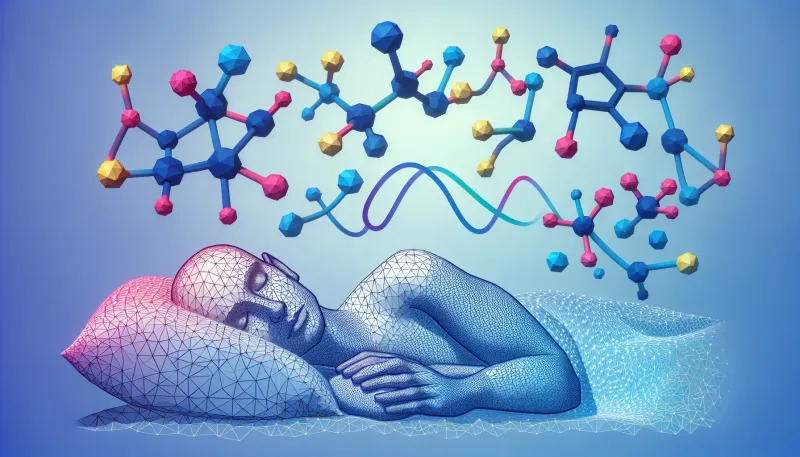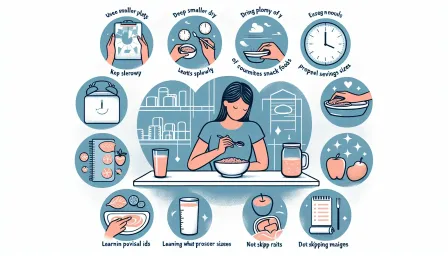The Connection Between Hormonal Balance and Sleep: What You Need to Know

Discover the vital connection between hormonal balance and sleep, and learn how maintaining hormonal harmony can optimize your sleep quality for better health.
Introduction
In our fast-paced lives, sleep often takes a backseat to other pressing matters. However, quality sleep is essential to our overall health and well-being. Intriguingly, hormonal balance and sleep are closely linked, with each influencing the other in significant ways. Understanding this connection can empower you to take steps towards better sleep and improved health.
How Hormones Affect Sleep
Melatonin: The Sleep Hormone
Melatonin, produced by the pineal gland, is a hormone that regulates the sleep-wake cycle. Its levels naturally rise in the evening, making you feel drowsy, and decrease in the morning, signaling that it's time to wake up. Disruptions to melatonin production can adversely affect your sleep patterns.
Cortisol: The Stress Hormone
Cortisol levels typically rise in the early morning hours, helping to wake you up, and gradually decrease throughout the day. However, chronic stress and other factors can cause cortisol levels to remain elevated, impairing your ability to fall asleep or stay asleep.
Estrogen and Progesterone
These reproductive hormones, particularly in women, can significantly impact sleep. Estrogen tends to promote healthy sleep, whereas fluctuations in progesterone can lead to sleep disturbances, especially during menstruation, pregnancy, and menopause.
The Role of Hormonal Imbalance in Sleep Disorders
Insomnia
Hormonal imbalances, particularly high cortisol levels, can lead to insomnia, making it difficult to initiate or maintain sleep. Additionally, changes in reproductive hormones can exacerbate insomnia in women.
Sleep Apnea
Hormones such as leptin and ghrelin, which regulate hunger and satiety, also influence sleep. Hormonal imbalances in these areas can contribute to obesity, a significant risk factor for sleep apnea, which in turn disrupts sleep quality.
Night Sweats
Night sweats, often caused by fluctuations in estrogen and progesterone, can disrupt sleep and are commonly reported during menopause. Addressing hormonal balance can alleviate this condition and improve sleep.
Maintaining Hormonal Balance for Better Sleep
Healthy Diet
A balanced diet rich in essential nutrients supports hormonal health. Foods high in omega-3 fatty acids, fiber, and antioxidants can help regulate hormones and improve sleep quality. Avoiding caffeine and large meals before bedtime can also aid in better sleep.
Regular Exercise
Engaging in regular physical activity can help balance hormones such as cortisol and estrogen. Exercise can also promote better sleep by reducing stress and anxiety levels.
Stress Management
Chronic stress is a primary driver of hormonal imbalance. Techniques such as mindfulness, meditation, and yoga can help manage stress and regulate cortisol levels, contributing to improved sleep.
Sleep Hygiene
Practicing good sleep hygiene is crucial. This includes maintaining a consistent sleep schedule, creating a conducive sleep environment, and avoiding screen time at least an hour before bed. Prioritizing these habits can help normalize hormone regulation and sleep patterns.
When to Seek Professional Help
If you suspect hormonal imbalances are affecting your sleep, it is essential to consult a healthcare professional. Hormone therapy, lifestyle changes, and other treatments can be effective in restoring balance and improving sleep quality.
Conclusion
Understanding the profound connection between hormonal balance and sleep is crucial for optimizing your well-being. By taking actionable steps to maintain hormonal harmony through diet, exercise, stress management, and sleep hygiene, you can significantly improve your sleep quality. When challenges persist, professional guidance can offer tailored solutions, ensuring you achieve the restful sleep your body needs.



























